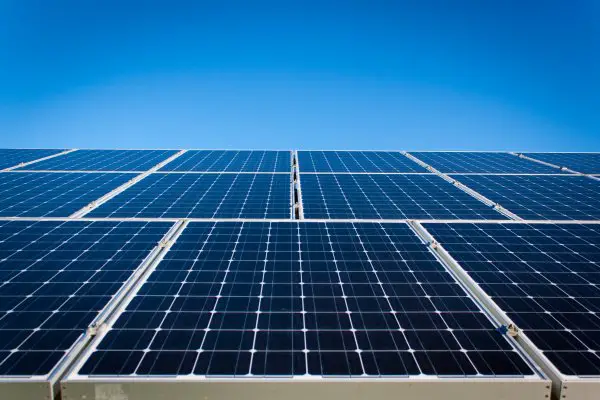World’s Largest Oil Producer To Build Solar Plant That Is 100x Larger Than Any Other

By Amanda Froelich Truth Theory
Saudi Arabia may be the world’s largest producer of oil, but the country is taking steps to reduce its environmental impact. On Tuesday, SoftBank Group Corp’s Vision Fund announced that it will invest in the world’s biggest solar power project, and it will be built in Saudi Arabia.
SoftBank Chief Executive Masayoshi Son told the press that the solar plant will have the capacity to produce up to 200 gigawatts (GW) by 2030. Said Saudi Crown Prince Mohammed Bin Salman of the development: “It’s a huge step in human history. It’s bold, risky, and we hope we succeed doing that.”
As Al Jazeera reports, the plant will add approximately 400 GW of globally installed solar power capacity. Surprisingly, that is comparable to the output of the world’s total nuclear power capacity of around 390 GW (as of the end of 2016).
The total cost of the investment — which includes solar panels, battery storage, and a manufacturing facility for panels in Saudi Arabia — all total around $200 billion, said Son. The first phase of the project, for 7.2 GW of solar capacity will cost $5 billion. $1 billion will be sourced from SoftBank’s Vision Fund; the rest is being procured from project financing.
According to Bloomberg, the project is planned for the Saudi desert. Data from Bloomberg New Energy Finance reveals that it could be around 100 times bigger than the next largest proposed solar plant. Not only that, it could “more than double what the global photovoltaic industry supplied last year.”
The country’s partnership with SoftBank Solar could signify a huge step away from oil and towards renewable energy. At the moment, the country only has small-scale solar projects. Reuters reports that despite being one of the sunniest countries in the world, most of Saudi Arabia’s energy is sourced from oil-fired plants.
Said Economist Intelligence Unit lead energy analyst Peter Kiernan: “Saudi Arabia is clearly preparing for a post-fossil fuel dependent economy in terms of domestic energy consumption, and this huge bet on renewables would free up a lot of domestic output of oil for exports, while probably saving domestic gas resources as well.”
“Up until now, progress in building solar capacity in the kingdom has been very slow, but this deal might give it the kick start it needs. But 200 GW by 2030 though, that’s another question,” Kiernan added.
What are your thoughts? Please comment below and share this news!
Image Featured/Credit: Pexels
Leave Comment: